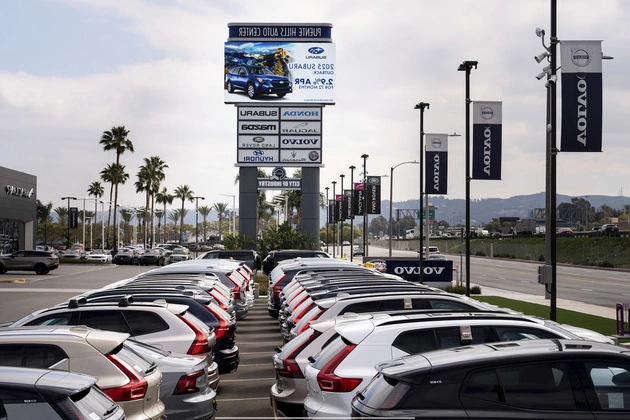
The Complex Landscape of Auto Tariffs
Donald Trump’s tariffs have put Democrats in a difficult position, especially as they aim to regain support from working-class voters. The recent announcement of a 25 percent tariff on imported cars and auto parts has prompted cautious responses from Democrats across different regions.
Varied Views on Tariffs
While Democrats generally oppose many of Trump’s policies, the issue of tariffs has divided the party. Some, like Democratic Rep. Gwen Moore of Wisconsin, view tariffs as a double-edged sword, emphasizing the need for strategic decision-making.
Michigan state Sen. Darrin Camilleri highlights the potential impact of tariffs on consumer goods while also acknowledging the importance of challenging corporate outsourcing practices.
Divergent Perspectives on Trade Policies
The debate on tariffs extends to potential 2028 presidential contenders within the Democratic Party. Michigan Gov. Gretchen Whitmer, former Transportation Secretary Pete Buttigieg, and Kentucky Gov. Andy Beshear offer contrasting views on the effectiveness and consequences of tariffs.
However, Rep. Ro Khanna of California stands out as a proponent of targeted tariffs to revitalize American manufacturing, advocating for a comprehensive approach that combines trade policies with workforce development initiatives.
Internal Debates and External Concerns
Despite disagreements on specific tariff measures, many Democrats emphasize the need for a well-thought-out tariff policy that aligns with strategic goals rather than reactive responses. Rep. Emilia Sykes and Rep. Frank Mrvan underscore the importance of strategic versus blanket tariffs.
Public opinion on tariffs is also a factor influencing Democratic stances, with polls indicating skepticism towards Trump’s tariff strategies.
Challenges and Strategic Considerations
As Democrats navigate the implications of auto tariffs, they raise concerns about the potential economic repercussions, supply chain disruptions, and the long-term impact on various industries. The balancing act between protecting American workers and avoiding trade disruptions remains a key priority.
Despite reservations, some Democrats acknowledge the relevance of tariffs in certain scenarios but stress the importance of strategic decision-making and a focus on domestic manufacturing.
Looking ahead, Democrats are mindful of the intricate dynamics surrounding auto tariffs and the broader implications for economic policies and trade relations.
**Note:** This content provides a comprehensive overview of Democratic perspectives on auto tariffs and the evolving discourse within the party. For the latest updates and insights, regular content review and updates are recommended.











